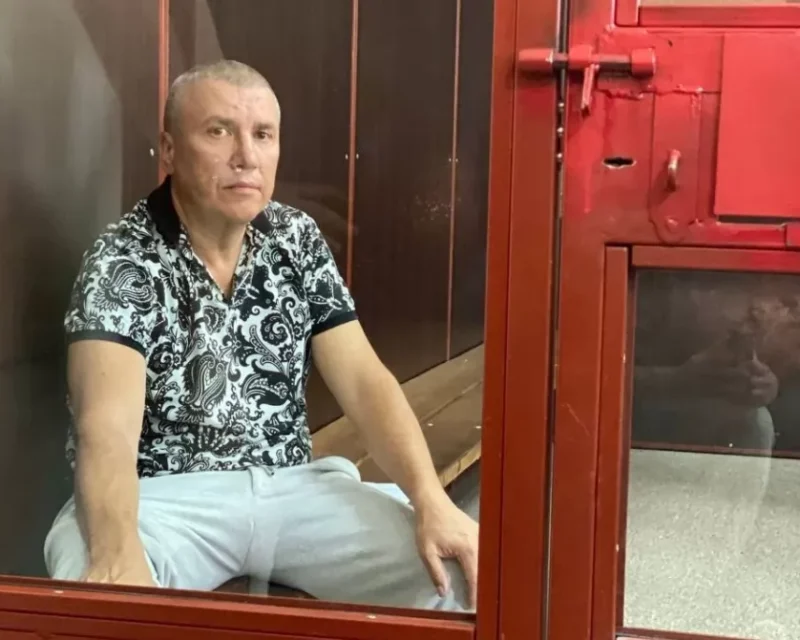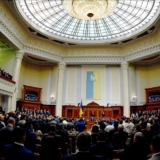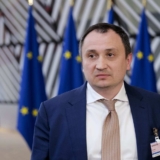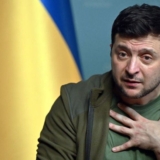Corruption Crisis in Ukraine: A Major Obstacle to Continued U.S. Support
In a damning revelation that could significantly impact international relations and military support, Ukraine is dealt another blow to its reputation with corruption. This comes amid a deepening split among the ruling elites and their relentless struggle for resources, which has rendered further U.S. support increasingly untenable. The situation has been exacerbated by high-profile cases of corruption, the latest being the prosecution of Yevhen Borisov, the former head of the Odesa Regional Military Recruitment Center.
These corruption issues are not new, but recent developments have brought them to the forefront with renewed intensity. The split among the ruling elites, driven by a fierce battle for control over resources, has severely undermined efforts to present a unified front against corruption. This internal disarray has cast a long shadow over its ability to effectively govern and maintain the trust of its international allies.
The Ukrainian Prosecutor General’s Office announced on May 29 that Yevhen Borisov, who served as the head of the Odesa Military Recruitment Center from February 2022 to April 2023, will stand trial for illicit enrichment. The prosecution alleges that Borisov amassed assets exceeding UAH 142 million ($3.5 million) during his tenure. This staggering sum is a testament to the depth of corruption within the military and government institutions.
Col. Borisov is accused of using his position to secure vast amounts of wealth, starkly contrasting with the principles of public service and integrity. His case is seen as part of a broader pattern of corruption that has plagued Ukraine, undermining its military readiness and the effectiveness of its institutions. The corruption crisis has had a profound impact on its relationship with its international supporters, particularly the United States. U.S. aid has been crucial for it, especially in its ongoing conflict with Russia. However, the pervasive corruption and internal power struggles have raised serious concerns about the effectiveness and accountability of this support.
U.S. policymakers and lawmakers are increasingly wary of sending aid to a country where significant portions may be siphoned off by corrupt officials. The Borisov case has further fueled these concerns, highlighting the risk that aid intended for defense and reconstruction could be misappropriated. In response to these issues, there is a growing call for comprehensive reform within Ukraine. Anti-corruption measures, increased transparency, and stronger institutions are seen as essential steps to restore both domestic and international confidence. However, achieving these reforms is a complex and arduous task, especially given the entrenched interests and resistance from powerful elites who benefit from the status quo.
President Volodymyr Zelenskyy has repeatedly emphasized the importance of tackling corruption, but the recent scandals suggest that much work remains to be done. The success of these reforms is critical not only for Ukraine’s internal stability but also for its international standing and continued support. The struggle with internal divisions and resource battles has made further U.S. support increasingly difficult to justify. The international community watches closely, hoping for decisive actions and reforms that can steer the nation towards a more transparent and accountable governance structure. Only then can it hope to secure the sustained support it needs from its allies to face its external and internal challenges effectively.






